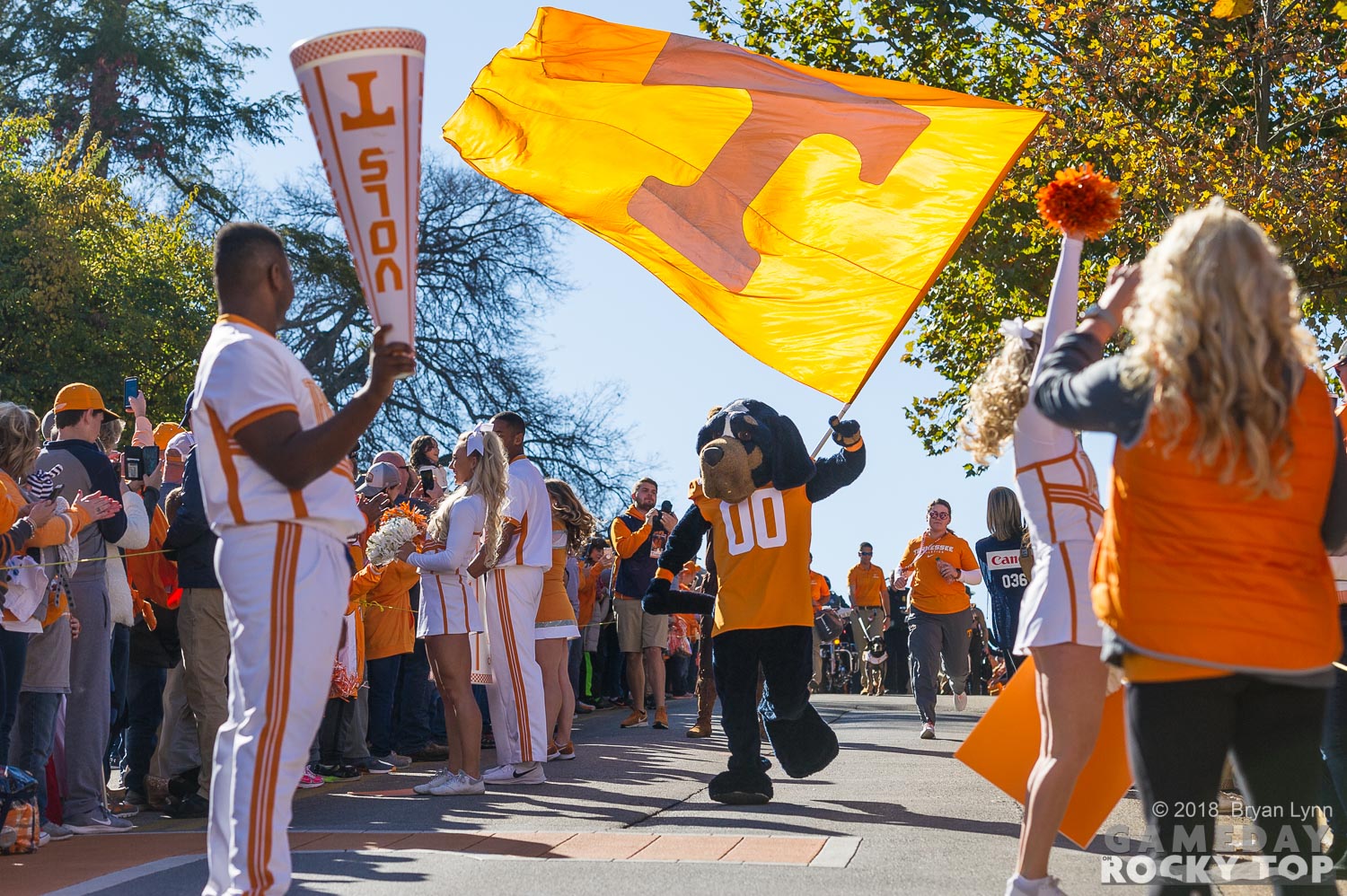We added a few new things to our annual Gameday on Rocky Top magazine this year, which, by the way, is now safely in the hands of the printer as of Tuesday. We’ll have the pre-order information available for you next week sometime.
Anyway, one of the new things we added this time around is an analysis of the various schedules of the SEC teams. We only set aside one page for that, so it’s limited to which teams have (1) the toughest and weakest overall schedules, (2) the toughest and weakest cross-divisional schedules, (3) the toughest and weakest non-conference schedules, and (4) the toughest three-game stretch. The executive summary is this: South Carolina has the toughest non-conference and toughest overall schedules, Florida and Auburn tie for toughest cross-divisional schedules, and Texas A&M has the toughest three-game stretch, thanks in part to consecutive road games against Georgia and LSU to close out a long season. That page of the magazine includes tables ranking each team in each category with explanations, so if you want to see where Tennessee ranks, well, watch your newsstands. 🙂
The double-bye schedule
But while I was putting all of that together, several other interesting things didn’t make the cut for a single page. For instance, the schedules are different this year in that every team has two bye weeks instead of one. (Florida actually has three because they kick the party off on August 24, a week earlier than almost everyone else, with a special game against Miami.) Part of this is a function of a periodic calendar quirk that provides more Saturdays during the season, but there is also discussion of planning for it to happen every year in part because it would allow teams more flexibility to reschedule games impacted by inclement weather.
Regardless of whether the double-bye schedule becomes permanent, it’s happening this fall, and one side effect is the variance it introduces into the difficulty of teams’ respective schedules.
All of this is, of course, based on an assumption rooted in intuition that a bye week is worth something to the team that has it. There’s not a lot of data on this, but in 2016, Football Study Hall looked at 2015 data and concluded that a bye week “might have been worth a couple of points . . . .” So, take it for what it’s worth, but the data seems to support the intuition that a bye week is probably worth at least a little something.
The potential impact on Tennessee
What does that mean for Tennessee this year? First, on the positive side of the ledger, the Vols’ bye weeks this year come before the Georgia and Missouri games. Georgia also has a bye prior to the Tennessee-Georgia game, so that’s a wash. But while Tennessee has an extra week to prepare for Missouri, the Tigers will be coming off of consecutive games against Georgia and Florida, and that, my fellow Vols fans, could matter.
On the other hand, a vengeful-minded Kentucky team has a bye week before it plays Tennessee, while the Vols will be coming into that game at the tail end of this stretch of games: Georgia, Mississippi State, at Alabama, South Carolina, never-to-be-taken-lightly UAB, and at Kentucky. That’s a lot of games in a row for a 12-game schedule that includes two byes for everybody. That could matter as well.
It’s stuff like this that leads to perceived inconsistencies between power rankings and projections despite the fact that those are two different exercises done for two different purposes. I said in a couple of different places in the magazine that Tennessee could be worse than Missouri and beat them and better than Kentucky and lose to them. At this point, that’s actually what I’m thinking will happen.
How might the doubling of the byes impact Tennessee’s SEC schedule this year?
As already mentioned, Georgia has a bye before playing Tennessee, but so do the Vols. Consider that a wash. Kentucky has one as well, while the Vols are dealing with UAB at the end of a tough stretch. But in addition to those two, there is another: Mississippi State also has the prior week off while the Vols are dealing with Georgia, and they’ll be the second fresh opponent in two weeks for the Vols.
The byes also provide Tennessee some advantages, though. South Carolina hosts Florida the week before coming to Knoxville (and is at Georgia the week before that). Missouri is in basically the same position in that it hosts Florida the week before playing Tennessee in Knoxville and also travels to Georgia the week before that.
So, it could be worse. As a matter of fact, it is worse for Georgia. Byes for Tennessee and Florida prior to playing Georgia are negated by byes at the same time for the Bulldogs, but three additional dangerous teams also rest up right before entering the ring with the Bulldogs: Missouri, South Carolina, and Auburn all have an extra week to prepare for Georgia, while Georgia is having to contend with Florida, Tennessee, and Missouri, respectively, in the weeks prior to those games.
The bottom line of all of this is that we should all probably expect some quirkiness this fall with seemingly better teams sometimes losing to seemingly inferior teams at a more favorable point in their schedule. And with the double byes this fall, there are twice as many opportunities for such chaos-creating quirks.




